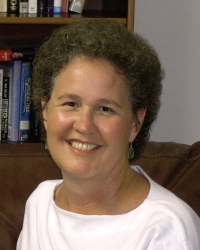Education on the Edge Lecture to Explore the Shift in California’s Education System

Linda Darling-Hammond
California’s educational shift will be explored in depth during the first Education on the Edge lecture of the year on Thursday, Feb. 19, at California State University, Northridge.
Linda Darling-Hammond, a Charles E. Ducommun professor of Education at Stanford University, and found and is co-director the Stanford Center for Opportunity Policy in Education, will argue that “California is on the cusp of great change in its education system: New sets of Common Core standards are guiding curriculum, new assessments are underway and strong efforts are being made to strengthen the educational workforce.”
Her lecture, “California on the Edge,” is scheduled to take place at 7 p.m. in the USU Northridge Center, located on the east side of campus at 18111 Nordhoff St. in Northridge.
“Linda Darling-Hammond has been named one of the nation’s top 10 most influential individuals on education policy,” said Wendy W. Murawski, executive director and Eisner Endowed Chair in the Center for Teaching and Learning in CSUN’s Michael D. Eisner College of Education. “Teachers, administrators and teacher educators alike find her work insightful, timely and cutting-edge. The CTL is honored to have her as one of our Education on the Edge speakers because we know she is aware, not only of the barriers that all educators face, but also of our goals and how we might achieve them.”
Darling-Hammond launched the Stanford Educational Leadership Institute and the School Redesign Network. She also served as faculty sponsor for the Stanford Teacher Education Program, is former president of the American Educational Research Association, a member of the National Academy of Education and chair of the California Commission on Teacher Credentialing.
Her research, teaching and policy work focus on issues of school restructuring, teacher quality and educational equity. From 1994-2001, she served as executive director of the National Commission on Teaching and America’s Future, whose 1996 report, “What Matters Most: Teaching for America’s Future,” led to sweeping policy changes affecting teaching and teacher education. In 2006, Darling-Hammond was named one of the most influential people affecting educational policy over the last decade.
“We look to Dr. Darling-Hammond to come and speak to us about where the field of education is going — especially in California — and how we can maximize our time, resources, and successes,” said Murawski
The Education on the Edge speaker series is free and open to the public. However, reservations are required. For more information and to reserve a seat/register, visit www.ctl-hammond.eventbrite.ciom.
CSUN’s Center for Teaching and Learning is the research, collaboration and professional development arm of the Michael D. Eisner College of Education. Faculty from departments across the college, are conducting cutting—edge research and professional development to address the needs of schools, in collaboration with K-12 teachers and administrators and community members.
The center was established in the summer of 2002, thanks to a generous gift from the Eisner Foundation, the family foundation of Michael and Jane Eisner. The center initially focused on neurodevelopment and how knowledge of those constructs can be taught to teachers—and ultimately impact the way they teach and the way students learn. During the past few years, the center has broadened its scope. Faculty and affiliates are researching and analyzing multiple innovative approaches to teaching, counseling, educational therapy, administration and professional development. The center also offers a speakers bureau that provides local schools and organizations an opportunity to bring these new approaches to their campuses, as well as a “What Really Works in Education” conference in March that is open to the community. More information on the CTL can be obtained at www.csun.edu/ctl .

 experience
experience